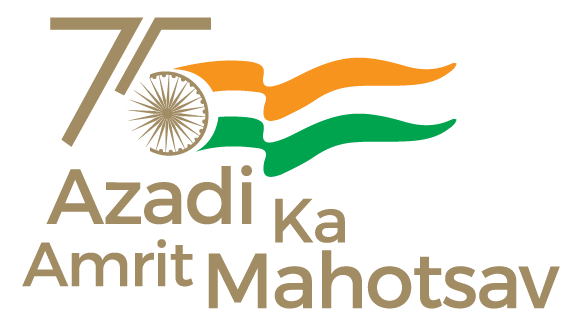Principal Scientific Advisor A K Sood Unveils Thematic Hubs and Technical Groups under the National Quantum Mission to Drive India’s Quantum Revolution, with Union Minister Dr. Jitendra Singh Joining Virtually

In a major step for India’s National Quantum Mission (NQM), selected premier institutions to establish Thematic Hubs (T-Hubs) were announced in the virtual presence of Dr. Jitendra Singh, Union Minister of State (Independent Charge) for Science and Technology, Minister of State (Independent Charge) for Earth Sciences, MoS PMO, Department of Atomic Energy and Department of Space and MoS Personnel, Public Grievances and Pensions, today in New Delhi. These hubs, dedicated to propelling quantum research and innovation, will help position India at the forefront of the global quantum technology revolution, reinforcing the country’s leadership in the most advanced scientific frontiers. “The hubs will be at the forefront of research and innovation, setting the stage for India’s leadership in quantum computing, communication, sensing, and materials, said Dr Jitendra Singh while announcing the T-Hubs. He added that one of the key strengths of the T-Hubs is their multi-disciplinary approach, bringing together experts from diverse fields like physics, computer science, engineering, and material science to drive holistic advancements in quantum technology. The four T-Hubs have been set up in the institutions – Indian Institute of Science (IISc) Bengaluru, Indian Institute of Technology (IIT) Madras along with Centre for Development of Telematics New Delhi, Indian Institute of Technology (IIT) Bombay and Indian Institute of Technology (IIT) Delhi and comprises of 17 Technical Groups. They were selected through a highly competitive process and will specialize in key quantum verticals, ensuring a comprehensive and robust development of Quantum Computing, Quantum Communication, Quantum Sensing & Metrology, and Quantum Materials & Devices respectively. National Quantum Mission launched its Call for Proposals (CFP) in January 2024, inviting leading academic institutions and R&D centers to submit projects in the four critical quantum verticals. The response was overwhelming, with 384 proposals submitted from across India. A rigorous evaluation process led to the selection of 17 proposals, representing the highest caliber of quantum research. A total of 152 researchers from 43 institutions across India contributed to this exceptional national effort, highlighting the country’s collective ambition to lead in this emerging field. The T-Hubs will drive significant advancements in quantum technology development, human resource capacity building, entrepreneurship and industry collaboration, as well as strengthening international partnerships. Each T-Hub will operate under the Hub-Spoke-Spike model, supporting a cluster-based network of research projects (Spokes) and individual research groups (Spikes) alongside these central hubs to enhance coordination among research institutions, enabling them to pool resources and expertise. “The Mission fosters collaboration between academic institutions, industry, startups, and government entities to seed, nurture, and scale up research in quantum technologies across these four verticals,” said DST Secretary Professor Abhay Karandikar. The NQM aims to empower research institutions and startups by providing essential funding, infrastructure, and a conducive environment for collaboration and growth. To further support the development of quantum technologies, NQM has prepared detailed guidelines aimed at nurturing startups in this emerging field. The mission will also facilitate critical national and international partnerships, ensuring India stays at the forefront of technological advancements while building the capacity of its researchers. The mission will ensure the sustained growth and development of the T-Hubs throughout its period, setting the stage for India’s leadership in Quantum Technologies. This approach will create a robust network of research initiatives and collaborations across the nation, ensuring comprehensive growth in quantum technology development. Institutes involved in the T-Hubs: Thematic Hub for Quantum Computing : Indian Institute of Science, Bengaluru Institutions Involved : IIT Delhi, IIT Kanpur, IIT Roorkee, IIT Bombay, IIT Madras, IIT Ropar, IIT Guwahati, IIT Patna, BITS Hyderabad, IMSc Chennai, JIIT Noida, SETS Chennai, CDAC Bengaluru, IIT Indore, IISER Thiruvananthapuram, IISER Pune, RRI Bengaluru, NISER Bhubaneswar, TIFR Mumbai, TIFR Hyderabad and JNCASR Bengaluru Thematic Hub for Quantum Communication : Indian Institute of Technology, Madras Institutions Involved : ISRO Ahmedabad, ISRO Satellite Centre, IIT Delhi, IIT Kanpur, IIT Kharagpur, IIT Bhilai, IIT Roorkee, IIT Jammu, IIT Tirupati, IIT Patna, IIT Indore, IIT Hyderabad, IISc Bengaluru, IISER Bhopal, IISER Mohali, RRI Bengaluru, HRI Prayagraj, IIST DOS Thiruvananthapuram, CDAC Bengaluru, C-DAC Thiruvananthapuram and SETS Chennai Thematic Hub for Quantum Sensing and Metrology : Indian Institute of Technology, Bombay Institutions Involved : IISc Bengaluru, IIT Madras, IIT Delhi, IIT Kanpur, IIT Gandhinagar, IISER Bhopal, IIT Ropar, TCG CREST Chennai, TIFR Bombay, TIFR Hyderabad, HRI Prayagraj, IACS Kolkata, BITS Goa, University of Hyderabad and SN Bose NCBS Thematic Hub for Quantum Materials and Devices : Indian Institute of Technology, Delhi Institutions Involved : IIT Bombay, IIT Madras, IIT Kanpur, IIT Roorkee, IIT Kharagpur, IIT Bhubaneswar, SSPL- DRDO Delhi, IACS Kolkata and IISER Pune Dr. J B V Reddy, Mission Director, NQM; Prof. Abhay Karandikar, Secretary, Department of Science & Technology; Dr. Neeraj Mittal, Secretary, Department of Telecommunications, Dr. Samir V Kamat, Secretary, DDR&D and Chairman DRDO; Prof. A.K. Sood, Principal Scientific Adviser to Government of India; Dr. Ajai Chowdhry, Chairman, MGB, NQM; Dr. Kris Gopalakrishnan, Chairman, MGB, NM-ICPS graced the occasion with their presence. ***** NKR/AG In a major step for India’s National Quantum Mission (NQM), selected premier institutions to establish Thematic Hubs (T-Hubs) were announced in the virtual presence of Dr. Jitendra Singh, Union Minister of State (Independent Charge) for Science and Technology, Minister of State (Independent Charge) for Earth Sciences, MoS PMO, Department of Atomic Energy and Department of Space and MoS Personnel, Public Grievances and Pensions, today in New Delhi. These hubs, dedicated to propelling quantum research and innovation, will help position India at the forefront of the global quantum technology revolution, reinforcing the country’s leadership in the most advanced scientific frontiers. “The hubs will be at the forefront of research and innovation, setting the stage for India’s leadership in quantum computing, communication, sensing, and materials, said Dr Jitendra Singh while announcing the T-Hubs. He added that one of the key strengths of the T-Hubs is their multi-disciplinary approach, bringing together experts from diverse fields like physics, computer science, engineering, and material science to drive holistic advancements in quantum technology. The four T-Hubs have been set up in the institutions – Indian Institute of Science (IISc) Bengaluru, Indian Institute of Technology (IIT) Madras along with Centre for Development of Telematics New Delhi, Indian Institute of Technology (IIT) Bombay and Indian Institute of Technology (IIT) Delhi and comprises of 17 Technical Groups. They were selected through a highly competitive process and will specialize in key quantum verticals, ensuring a comprehensive and robust development of Quantum Computing, Quantum Communication, Quantum Sensing & Metrology, and Quantum Materials & Devices respectively. National Quantum Mission launched its Call for Proposals (CFP) in January 2024, inviting leading academic institutions and R&D centers to submit projects in the four critical quantum verticals. The response was overwhelming, with 384 proposals submitted from across India. A rigorous evaluation process led to the selection of 17 proposals, representing the highest caliber of quantum research. A total of 152 researchers from 43 institutions across India contributed to this exceptional national effort, highlighting the country’s collective ambition to lead in this emerging field. The T-Hubs will drive significant advancements in quantum technology development, human resource capacity building, entrepreneurship and industry collaboration, as well as strengthening international partnerships. Each T-Hub will operate under the Hub-Spoke-Spike model, supporting a cluster-based network of research projects (Spokes) and individual research groups (Spikes) alongside these central hubs to enhance coordination among research institutions, enabling them to pool resources and expertise. “The Mission fosters collaboration between academic institutions, industry, startups, and government entities to seed, nurture, and scale up research in quantum technologies across these four verticals,” said DST Secretary Professor Abhay Karandikar. The NQM aims to empower research institutions and startups by providing essential funding, infrastructure, and a conducive environment for collaboration and growth. To further support the development of quantum technologies, NQM has prepared detailed guidelines aimed at nurturing startups in this emerging field. The mission will also facilitate critical national and international partnerships, ensuring India stays at the forefront of technological advancements while building the capacity of its researchers. The mission will ensure the sustained growth and development of the T-Hubs throughout its period, setting the stage for India’s leadership in Quantum Technologies. This approach will create a robust network of research initiatives and collaborations across the nation, ensuring comprehensive growth in quantum technology development. Institutes involved in the T-Hubs: Thematic Hub for Quantum Computing : Indian Institute of Science, Bengaluru Institutions Involved : IIT Delhi, IIT Kanpur, IIT Roorkee, IIT Bombay, IIT Madras, IIT Ropar, IIT Guwahati, IIT Patna, BITS Hyderabad, IMSc Chennai, JIIT Noida, SETS Chennai, CDAC Bengaluru, IIT Indore, IISER Thiruvananthapuram, IISER Pune, RRI Bengaluru, NISER Bhubaneswar, TIFR Mumbai, TIFR Hyderabad and JNCASR Bengaluru Thematic Hub for Quantum Communication : Indian Institute of Technology, Madras Institutions Involved : ISRO Ahmedabad, ISRO Satellite Centre, IIT Delhi, IIT Kanpur, IIT Kharagpur, IIT Bhilai, IIT Roorkee, IIT Jammu, IIT Tirupati, IIT Patna, IIT Indore, IIT Hyderabad, IISc Bengaluru, IISER Bhopal, IISER Mohali, RRI Bengaluru, HRI Prayagraj, IIST DOS Thiruvananthapuram, CDAC Bengaluru, C-DAC Thiruvananthapuram and SETS Chennai Thematic Hub for Quantum Sensing and Metrology : Indian Institute of Technology, Bombay Institutions Involved : IISc Bengaluru, IIT Madras, IIT Delhi, IIT Kanpur, IIT Gandhinagar, IISER Bhopal, IIT Ropar, TCG CREST Chennai, TIFR Bombay, TIFR Hyderabad, HRI Prayagraj, IACS Kolkata, BITS Goa, University of Hyderabad and SN Bose NCBS Thematic Hub for Quantum Materials and Devices : Indian Institute of Technology, Delhi Institutions Involved : IIT Bombay, IIT Madras, IIT Kanpur, IIT Roorkee, IIT Kharagpur, IIT Bhubaneswar, SSPL- DRDO Delhi, IACS Kolkata and IISER Pune Dr. J B V Reddy, Mission Director, NQM; Prof. Abhay Karandikar, Secretary, Department of Science & Technology; Dr. Neeraj Mittal, Secretary, Department of Telecommunications, Dr. Samir V Kamat, Secretary, DDR&D and Chairman DRDO; Prof. A.K. Sood, Principal Scientific Adviser to Government of India; Dr. Ajai Chowdhry, Chairman, MGB, NQM; Dr. Kris Gopalakrishnan, Chairman, MGB, NM-ICPS graced the occasion with their presence. ***** NKR/AG










